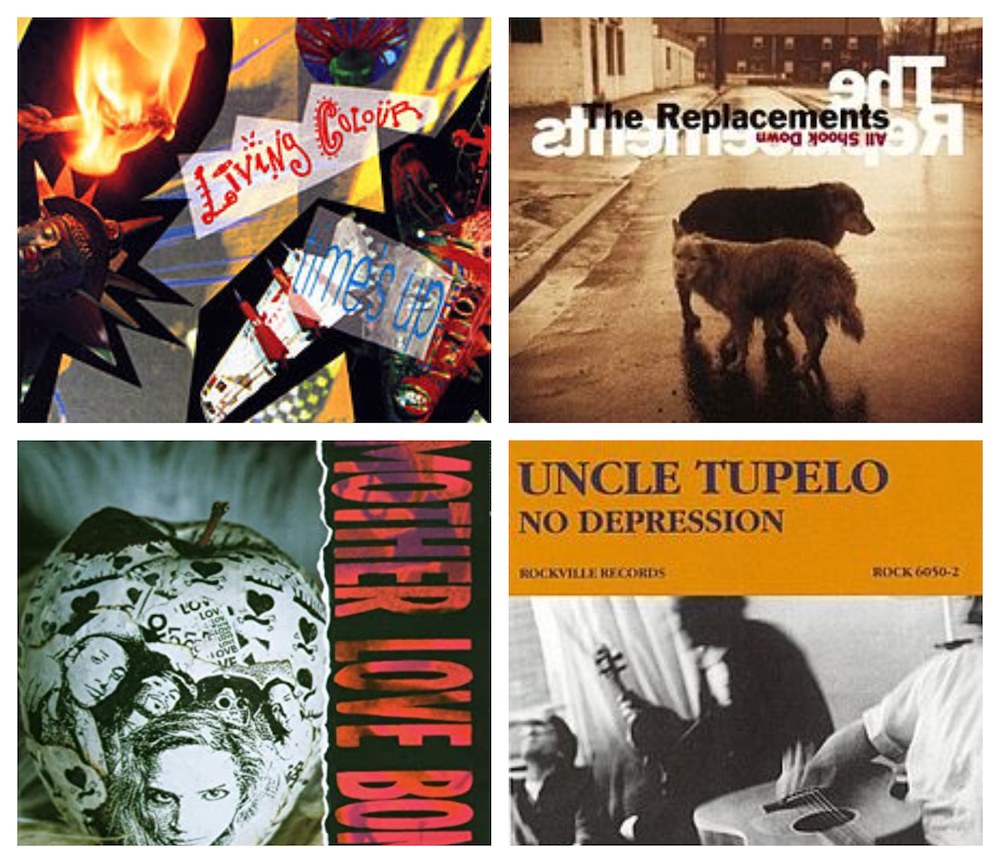Iggy Pop – Brick by Brick
The Don Was-produced Brick by Brick was a bit of a comeback for Iggy Pop, with Slash and Duff McKagan from Guns N’ Roses playing on much of the record. Kate Pierson, fresh off of her own comeback with The B-52’s, helped “Candy” become his first Top 40 hit, while Beavis & Butthead professed an affinity for the song “Butt Town.”
The Posies – Dear 23
The Posies were among the first band’s from Seattle’s rock underground to sign to a major label, but the harmony-laden power pop sound on their Geffen debut was out of step with the music their city would soon be famous for. But Dear 23 still featured moments like Mike Musburger’s powerhouse drumming on “Help Yourself” and Jon Auer’s epic guitar solo on “Flood of Sunshine” that hinted at how much harder the band would rock on future albums.
Primus – Frizzle Fry
After Primus capitalized on their popularity as a live act in the Bay Area with the 1989 live album Suck on This, the oddball funk metal trio made their proper debut studio album. Frizzle Fry reprised four songs from Suck on This, including the single “John The Fisherman.” And in 2015, singer/bassist Les Claypool told Noisey that Frizzle Fry was his favorite Primus album.
The Railway Children – Native Place
The Railway Children were a British quartet on the rise in the late ‘80s, supporting R.E.M. on a European tour. Their slicker, more keyboard-driven third album and its single “Every Beat of the Heart” gave them a major pop hit in the U.K. and a Modern Rock no. 1 in the States. But the band broke up soon after, and frontman Gary Newby never regained momentum when he began releasing albums again under the Railway Children name in 1997.
Lou Reed & John Cale – Songs for Drella
Two decades after Lou Reed fired John Cale from the Velvet Underground, the two legends came together for their sole album as a duo, a tribute to their band’s mentor and benefactor Andy Warhol, who’d died in 1987. Their rekindled relationship opened the door to a full-scale Velvets reunion in 1993, but it never went further than a brief European tour after another falling out between the two.
The Replacements – All Shook Down
One of the greatest bands of the 1980s staggered into the ‘90s, worn out by alcoholism, lineup changes, and reluctant music industry compromises that had finally given the Replacements a Hot 100 hit. Their final album, All Shook Down, sounds defeated and exhausted, but there’s still bittersweet poignance to songs like “Nobody” that pointed the way towards Paul Westerberg’s solo career.
Ride – Nowhere
Creation Records was at the height of its influence in 1990 when they signed the Oxford band Ride and the band’s first three EPs and debut album all hit the U.K. charts. Singer/guitarist Andy Bell rejected the “shoegazing” label for Ride, though the band was openly influenced by labelmates My Bloody Valentine, and the shimmering guitar tones of Nowhere made it a touchstone for countless other shoegazer bands.
Shudder to Think – Ten Spot
Shudder to Think was the rare Dischord Records band that eventually moved to a major label and did their best work there. And while their second album Ten Spot, with original guitarist Chris Matthews, is still a tentative run at the sound they’d continue to refine, frontman Craig Wedren’s soaring voice and unusual melodies still made Shudder to Think stand out from their labelmates on their first Dischord release.
The Sundays – Reading, Writing and Arithmetic
The London quartet The Sundays were an immediate sensation in their home country, but the jangly dream-pop of Reading, Writing and Arithmetic was a sleeper success in America. It didn’t go Gold until 1993, and the follow-up album, 1992’s Blind, took five years to go Gold.
Superchunk – Superchunk
North Carolina’s Superchunk burst onto the national indie scene with a self-titled album on Matador Records and the era-defining working-class anthem in “Slack Motherfucker.” But the hidden gem of the album is “My Noise,” which Ben Lee reworked imaginatively on his ‘90s alternative cover album Quarter Century Classix.
Uncle Tupelo – No Depression
The Illinois trio of Jay Farrar, Jeff Tweedy, and Mike Heidorn journeyed to Massachusetts to record their debut album with the same engineers and studio that Dinosaur Jr. used for Bug – Farrar even got to play one of J Mascis’s guitars. Within five years, Uncle Tupelo had broken up, but the seeds planted by the influential album would begin flowering: an alt-country magazine named after No Depression began publishing, and debut albums by Farrar’s next band, Son Volt, and Tweedy’s band Wilco.





